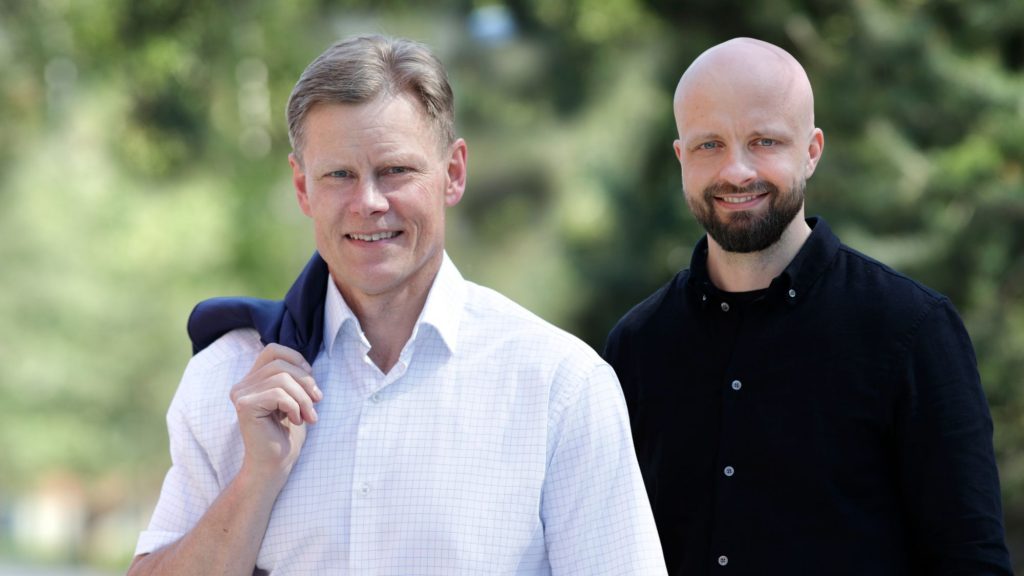We all have them. Those apps we open without thinking. Not because we need anything in particular, but because they feel… safe, in some…
Start-up raises $2.2m for nuclear heat decarbonisation

Steady Energy, a spin-out company from VTT Technical Research Centre of Finland, has secured nearly $2.2 million in seed funding to pursue its mission of decarbonising the energy-intensive heating industry. Led by VTT, Yes VC, and Lifeline Ventures, the funding will be used for research and development as Steady Energy aims to build the world’s first LDR-50 reactor-based heating plant by 2030.
Steady Energy’s revolutionary approach aims to transform residential and district heating by harnessing the power of small modular nuclear reactors. The LDR-50 district heating reactor, designed by VTT, is set to produce heat efficiently, safely, and carbon-neutrally, operating at considerably lower temperature and pressure compared to traditional nuclear reactors.
“The pressure required by the LDR-50 reactor is comparable to the pressure of a household espresso machine. It operates at a lower pressure than a district heating network. This ensures that in case of a malfunction which leads to a leak, the leak is contained within the heating plant, without endangering people or the environment,” explains Tommi Nyman, CEO of Steady Energy.
The significance of decarbonising residential heating is highlighted by the fact that approximately 50% of all energy consumed by EU households is used for heating. With about 300 TWh of the 500 TWh annual district heat consumption in Europe being produced by fossil fuels, the market potential for decarbonisation in this sector amounts to hundreds of billions of euros.
“75% of district heating systems in the EU are currently powered by fossil fuel. The situation is even worse in China,” continues Nyman.
“Nuclear energy is already a major source of low-carbon electricity, and small modular reactors represent a pathway to expand the use of the technology to other energy sectors in addition to heating. On top of being safer than traditional reactors, SMRs are more affordable.
“We’re setting up a demonstration plant for district heating purposes ideally in Finland, but our long-term plan is to have several plants operating around the world, producing carbon-neutral heat to homes, offices, and for various industrial applications. We will bring to market the world’s best nuclear energy technology optimised for the heating sector.”
The safety features of the LDR-50 reactor are a crucial aspect of its design. With simplified technology and passive heat removal solutions, the reactor meets extremely high safety requirements. Its innovative design incorporates two nested pressure vessels, with an intermediate space partially filled with water. In the event of compromised heat removal, the water in the intermediate space boils, providing a passive heat transfer route into the reactor pool. This ingenious system operates without electricity or mechanical moving parts, minimising the risk of failure.
“Nuclear power know-how, national energy policy, and the world’s leading district heating network provide the world’s best starting point for Steady Energy to start its business specifically in Finland,” says Timo Ahopelto, founding partner at Lifeline Ventures.
“At VTT, we’ve been turning hope into action for 80 years by driving scientific innovation to change the world and businesses for the better. Right now, humanity is facing its most challenging adversary, climate change.
“We are on a journey to explore tomorrow’s technologies and innovate cutting-edge solutions to build the carbon-neutral societies of the future. Steady Energy represents our commitment to our purpose and embodies the hope we want to bring to the world,” says Jussi Manninen, executive vice president of VTT.
Steady Energy’s pioneering vision is poised to revolutionise the heating industry. By leveraging small modular nuclear reactors, the company aims to deliver efficient, safe, and carbon-neutral heat to homes, offices, and industrial applications worldwide, thereby contributing to the fight against climate change and reducing greenhouse gas emissions.
READ NEXT: Qardy & Egypt Post pact: Game-changer for SME financing

